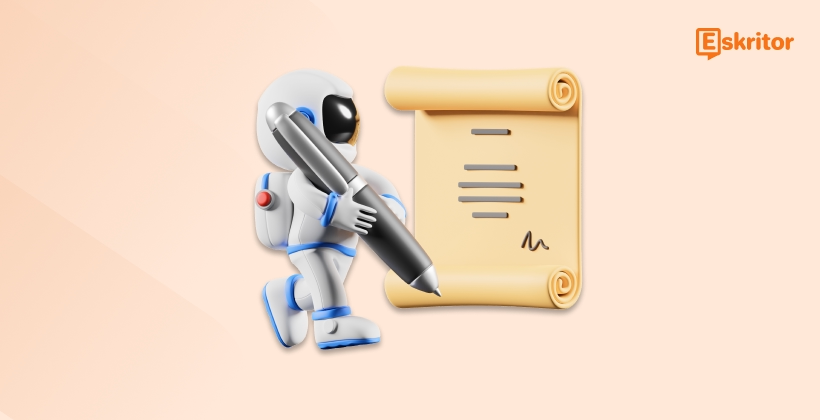How AI Writers Are Transforming Content Creation
How AI Writers Are Transforming Content Creation
Blog Article
How AI Writers Are Transforming Content Creation
As artificial intelligence (AI) evolves, it remains to revolutionize how exactly we strategy modern editing practices. From syntax correction tools to sophisticated material generation programs, AI writer is reshaping the way in which authors, editors, and builders improve their work. That blog considers the role AI represents in modern editing and the impact it has across industries.

AI-Powered Tools Primary the Demand
AI-powered instruments have grown to be an indispensable element of modifying workflows. Pc software fueled by normal language running (NLP) and equipment understanding can do responsibilities like syntax checks, stylistic recommendations, and phrase restructuring with extraordinary pace and accuracy.
For example, AI-based syntax checkers may identify errors that the eye may possibly ignore, such as for instance subject-verb deal problems or lost modifiers. Equally, style enhancements generated by AI ensure that tone and flow align with the supposed audience, which can be invaluable for skilled editors.
These instruments are not just restricted to standard syntax corrections. They are capable of improving readability, transforming inactive style to productive style, and also paraphrasing whole paragraphs without adjusting the meaning.
Effectiveness Matches Time Savings
Reports reveal that the use of AI tools can lower editing time by around 30%. Rather than poring around every phrase physically, authors can target their attempts on innovative and proper components of content. This shift allows professionals to manage larger quantities of text in shorter periods, which is especially useful for industries like publishing and electronic marketing.
Additionally, predictive AI characteristics can highlight continuing mistakes, helping writers enhance their abilities over time. For businesses, this equals less assets used on revisions and more polished outputs right from the start.
Increasing Convenience and Globalization
AI's role in contemporary modifying runs beyond efficiency. Advanced interpretation and localization resources allow designers to change material easily for international audiences, deteriorating language barriers with precision. That engineering assures that the same meaning may resonate with countries world wide while keeping its authenticity.
AI also increases inclusivity criteria by improving accessibility in content. As an example, calculations can identify probably non-inclusive language and recommend alternatives. That ability enables editors to refine publishing so it resonates with varied audiences.

Impressive a Balance Between AI and Individual Creativity
While AI excels in rate and accuracy, it does not change human editors. Machines often lack the ability to interpret nuance, sensation, or cultural context fully. The perfect system mixes AI's efficiency with human imagination and insight, leading to really extraordinary work.
By leveraging these systems in modern editing practices, makers and writers equally may generate high-quality material that aligns with the fast-paced needs of today's digital world. AI will be the future of editing, nevertheless the human feel can be essential for storytelling and connection. Report this page